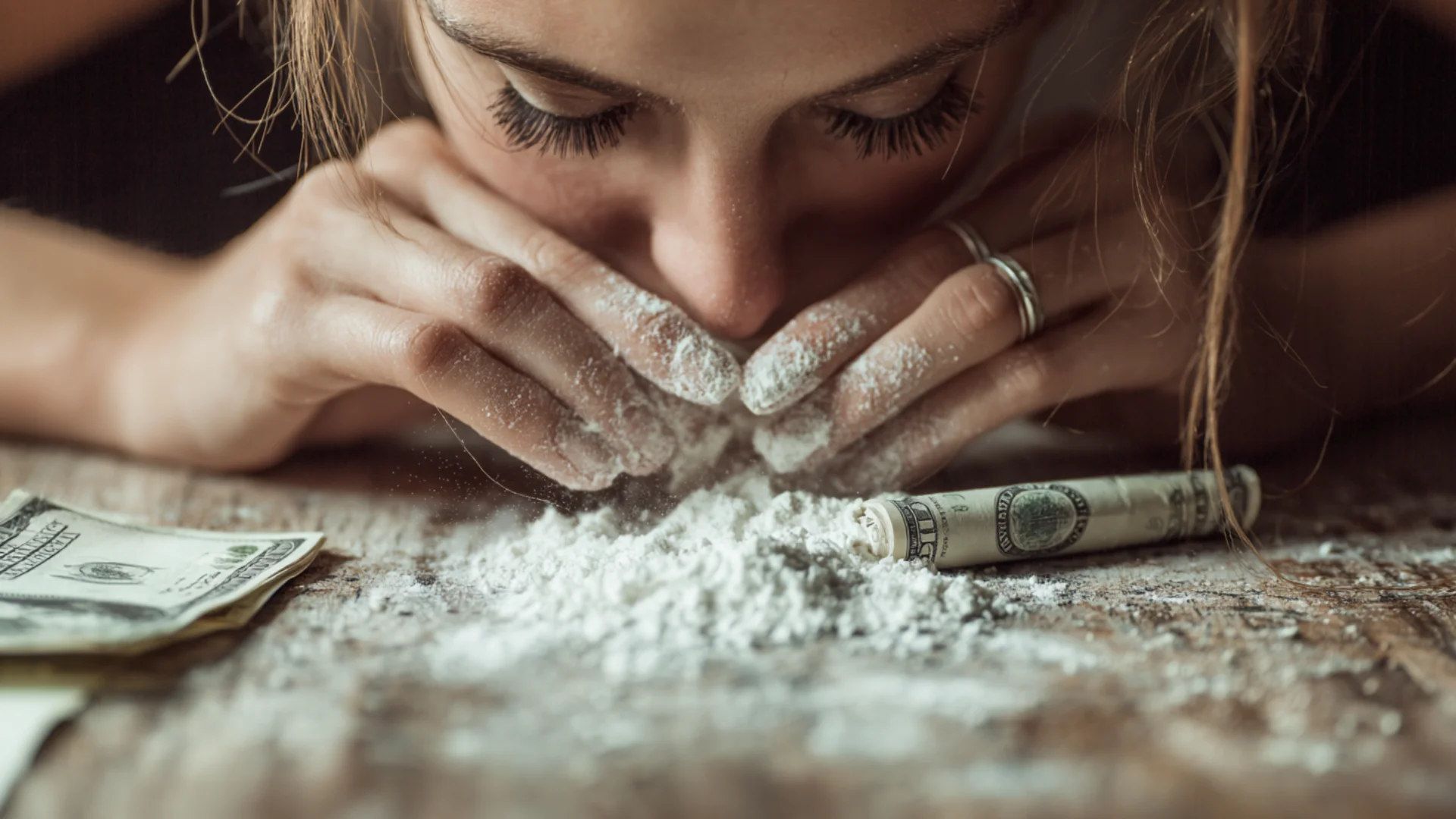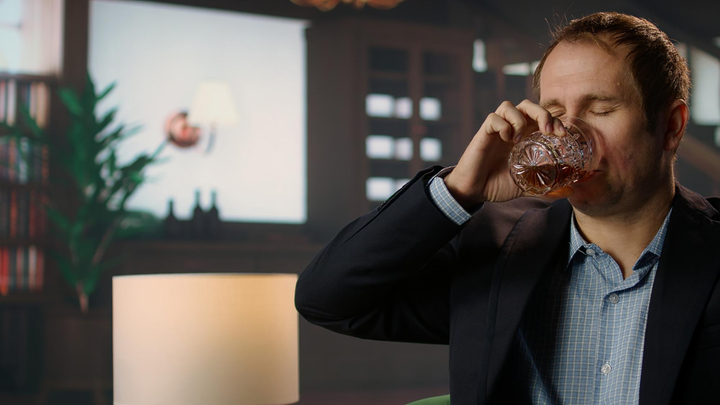Alcohol consumption poses serious health issues, and it is well documented to cause liver damage and heart issues. The entire human body suffers from such serious implications, including the eyes. A low intake of alcohol doesn’t have any dire consequence on our eyes, but chronic alcohol addiction can cause irreversible damage to our vision. It affects the optic nerve, which is crucial for our vision; any damage to it might lead to permanent vision loss.
Signs of Alcohol Consumption:
Sometimes it’s really easy to hide the signs of alcohol consumption, but the size of the pupil is one of the key indicators that a person has been consuming alcohol. Whenever you are looking for a sign of intoxication, you should see how the body responds to the substance in question.
Even if someone is really good at hiding those signs, it’s really hard for them to prevent their pupil from changing size. It is a telltale sign to determine the sobriety of any person. Alcohol can be detected in your system long after the intoxication effects go away. If you haven’t dealt with such a situation before, you can’t tell the difference between the sober and intoxicated eyes of anyone. Therefore, an important question arises: whether or not alcohol drinking makes your pupil small.
Alcohol and Nervous System:
Our nervous system controls our involuntary actions such as digestion, heart rate, and pupil dilation. Alcohol is a nervous system depressant. It slows down your brain and neural activity, therefore hindering those involuntary body actions. Our CNS is further bifurcated into the sympathetic and parasympathetic systems. These are the systems that are directly involved with pupil size directions. The sympathetic and parasympathetic systems work as antagonists, where the latter is responsible for pupil constriction and the former is responsible for pupil dilation.
How Sober Pupils React to Light:
Understanding some of the primary physical signs that someone has consumed a substance, whether it is alcohol, marijuana, or another drug, can help them recover. Our pupils naturally react to light, and when exposed to direct light while fully sober, they will rapidly contract. However, your reaction time alters when you’re intoxicated with alcohol.
How Pupils Dilate:
Your eyes and how they react to light are directly affected by different physical, emotional, and chemical reactions that occur in your body after a few drinks or a hit of any drug. Everybody who has had an eye exam knows that the doctor shines a light into your eyes to measure how sensitive and responsive your pupils are to light.
Your eyes react quickly under normal circumstances and retract to their original size after exposure to direct light. However, when you’re under the influence of drugs or alcohol, your pupils noticeably respond slowly. They do contract as they normally would, but the reaction is much slower, giving a definite clue that you are under the influence of drugs or alcohol. If you ever need to sober up quickly, this might help you.
Can Alcohol Make Your Pupil Small?
You are probably still wondering about this statement. Yes, drinking alcohol makes your pupils small. Alcohol causes contraction of the pupil by increasing parasympathetic nervous system activity when it suppresses the central nervous system. This shows that your pupils might become smaller in size after consuming alcohol. The amount of alcohol consumed, alcohol metabolism, and nervous system sensitivity combined affect your pupil size.
The Correlation Between Alcohol and Pupil Size:
It’s interesting to note that there is a complex relationship between alcohol and pupils. Although alcohol usually causes pupils to constrict, there are some situations in which it can cause dilation. For example, the body’s reaction to drinking alcohol involves the activation of the sympathetic nervous system, which results in momentary pupil dilatation. Additionally, pupil dilatation can also result from the combined effects of alcohol and certain drugs or stimulants.
Long-term alcohol consumption can permanently change how the autonomic nervous system functions. Autonomic neuropathy is a disorder in which the autonomic nerves are damaged as a result of chronic heavy drinking. Depending on the degree and type of nerve damage, people suffer from either persistent pupil dilatation or constriction in such situations.
The full effects of alcoholism are beyond the scope of this article, but there are some interesting eye effects of alcohol.
Take the First Step Today.
It’s never too late to fight back alcohol addiction and start your journey towards living a fulfilling, purposeful, and sober life. Consult with our medical experts now and take the first step in your fight against alcohol addiction.
5 Ways Alcohol Affects Your Eyes:
Alcohol consumption doesn’t just affect your liver, heart, or brain; it directly impacts your eyes and your sense of vision. From slowed reaction to glaucoma risks, here are 5 ways alcohol affects your eyes.
1. Slows pupillary reactions:
The pupil is the colored opening in the middle of your iris. The iris muscles are responsible for dilation or constriction of the pupil. Dilation and constriction are your eye’s reflexive controls over light.
Alcohol relaxes the iris muscles and dilates the pupil. It also slows pupil reflexes, delaying pupil constrictions in bright light. This might not be a big deal in most situations, but it can make nighttime driving dangerous, as your eyes won’t react as quickly to oncoming headlights.
2. Reduces Contrast Sensitivity:
The ability to distinguish shades and patterns is termed contrast sensitivity. Drivers need better contrast sensitivity to spot the silver sedan with broken taillights through sheets of rain on a dark, gray rainy day. In heavy rain, alcohol impairs contrast sensitivity, making it harder for you to see.
3. Dry Eye Disease:
Dry eye disease (DED) causes eye inflammation and a vulnerable tear film. Dry eyes are common in this condition, but other symptoms include burning eyes, feeling like a foreign particle is in your eye, redness, and impaired vision. Many studies show that alcohol worsens DED symptoms. Soon after drinking, tears have been found to contain low levels of alcohol.
4. Increased Cataract Concerns:
Cataracts cause the lens of the eye to become opaque, which affects your vision. While age-related cataracts can happen to everyone, heavy drinking increases the risk. Many doctors believe oxidative stress is a major cause of age-related cataract formation. Wine grape skin contains antioxidants that may protect the eye lens from oxidative damage. So moderate drinking might help reduce such risks. A recent study found that people who drank 6.5 standard glasses of wine per week had fewer cataract surgeries.
5. Exposure to Glaucoma Risks:
The optic nerve is irreversibly damaged by glaucoma, which is vital for our vision. Glaucoma often results from high intraocular pressure. Glaucoma symptoms are usually painless and hard to detect until too late. Over time, optic nerve damage in glaucoma causes permanent peripheral vision loss.
Alcohol consumption is linked to higher intraocular pressure in men but not women. Alcohol may temporarily lower IOP, protecting against glaucoma, but some studies suggest no such relation exists between the two.

Factors Affecting Pupil Dilation:
The degree of change in pupil size due to alcohol consumption is influenced by a number of factors. A few of these factors are listed below:
- Amount of Alcohol: The amount of alcohol consumed directly impacts the degree of pupil dilation. Higher alcohol blood content typically causes more noticeable dilation.
- Individual Factors: Genetics, alcohol tolerance, and general health are some of the variables that affect how different people react to alcohol. Pupil size changes are therefore more significant for some people than others.
- Environment and Lighting: The lighting in the surroundings also dictates your pupil dilation. In low light, pupils naturally dilate to let more light into their eyes. Under such circumstances, alcohol-induced dilatation can be noticed more easily.
- Medication: When alcohol reacts with certain medications, it may worsen their effects on pupil dilation. You have to be extra careful. If you take prescription medications.
- Health Conditions: Regardless of alcohol intake, some medical conditions, such as specific neurological disorders, also impact pupil size.
Long-term Effects of Alcohol on Vision:
Pupil size directly affects our vision and how it sees and differentiates between different things in our surroundings. Our pupils control the amount of light that passes through our eyes. A smaller pupil allows little or no light to pass and affects the night vision. So, a person with a smaller pupil would find driving at night really difficult as compared to a normal person.
An alcoholic person might start to feel double/blurred vision due to the consistent damage alcohol does to the optic nerve. Long-term consumption of alcohol increases the risk of eye damage and disease. All of these implications are preventable with an early diagnosis.
We are Here for You:
One can better understand the effects of alcohol consumption on pupil size by understanding its impact on the central nervous system. Alcohol generally causes the pupils to constrict, but this bidirectional relation is also influenced by several other factors like the amount of alcohol consumed, individual differences, and other substances in the blood. These help us to understand the long-term implication of alcohol addiction on our vision and nervous system.
Battling Cocaine Addiction Alone?
The first step is usually the hardest one. Take a leap of faith and book a free consultation with us for cocaine addiction. Our team would stand with you along the whole path to recovery, supporting you medically and morally.
How does alcohol make your pupils small
Alcohol suppresses the normal functioning of your nervous system. The parasympathetic nervous system, which controls the pupil constriction is affected, which results in a smaller pupil size.
Does pupil dilation confirm alcohol intoxication?
Although alcohol does cause the pupil size changes, it’s not a reliable factor because other substances can also affect pupil size depending on each individual.
How long do the pupils remain small?
For moderate drinking the pupils come back to their original size once alcohol leaves the system. But long-term alcohol consumption can cause permanent changes to pupils.
Are there any long-term effects of alcohol on pupil size?
Chronic alcohol consumption can lead to optic nerve damage, leaving the pupil dilated or constricted permanently.


